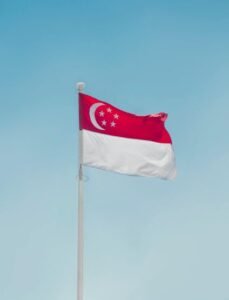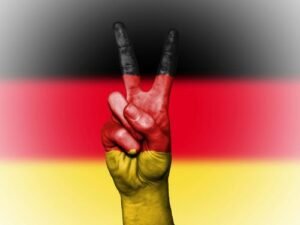
Belgium is a small but beautiful European country known for its chocolates, waffles, and historic cities. However, for immigrants, especially Pakistanis, the country’s complicated bureaucracy can turn into a big problem. Managing paperwork, visas, and registrations often feels like an endless challenge. This blog will explain why Belgian bureaucracy is so difficult for Pakistani immigrants and how it affects their daily lives.
Before diving into the challenges, let’s first understand what bureaucracy means. Bureaucracy refers to the rules, regulations, and processes set by governments to organize their work. Simply put, it’s the paperwork and procedures you must follow to get things done legally.
In Belgium, the system is especially complicated because of its unique political structure. The country is divided into three regions—Flanders, Wallonia, and Brussels—each with its own set of rules and authorities.
Why Belgian Bureaucracy Is Complicated

Belgium’s political structure makes it one of the most bureaucratic countries in Europe. Here are a few reasons why:
- Multiple Layers of Government: Belgium has federal, regional, provincial, and local governments. Each level has its responsibilities, which often overlap.
- Language Requirements: Belgium has three official languages—Dutch, French, and German. The language rules differ depending on the region, adding another layer of complexity.
- Slow Processes: Government offices in Belgium are known for their slow processing times. Simple tasks can take weeks or even months.
Visa and Residency Issues

Getting a Visa
For Pakistani immigrants, the first challenge is obtaining a visa. Whether it’s a student visa, work permit, or family reunification visa, the process can be very slow. You need to submit many documents, including:
- A valid passport
- Birth certificates
- Police clearance certificates
- Proof of income or financial support
These documents often need to be translated into one of Belgium’s official languages and legalized, which adds extra steps.
Residency Permits

After arriving in Belgium, Pakistani immigrants must register with their local commune (municipality) to get a residency permit. This process can take months, and until you receive your residency card, you cannot access basic services like:
- Opening a bank account
- Signing a rental agreement
- Getting health insurance
The long waiting times and unclear instructions make this process very stressful.
The Language Barrier

Belgium’s language diversity is a challenge for many immigrants. Pakistanis usually speak Urdu, Punjabi, or English, but Belgium primarily uses Dutch, French, or German.
Official Documents in Local Languages
All forms, notices, and official communications are in one of these languages. If you don’t understand the language, you must hire a translator or ask for help from friends or community members.
Limited English Support
Unlike some other European countries, Belgium does not provide widespread support in English. This lack of English resources makes it harder for Pakistanis to navigate the system.
Cultural Differences

Rigid Rules
In Pakistani culture, people are used to flexible systems and personal interactions. In Belgium, the rules are strict, and officials rarely make exceptions.
For example, if you miss a deadline or fail to provide the correct documents, your application may be rejected, forcing you to start over. This can feel harsh to immigrants who are unfamiliar with the system.
Lack of Personal Interaction
In Pakistan, many tasks are completed through informal discussions or personal connections. In Belgium, most processes are formal, requiring written applications and scheduled appointments. This difference can make the system feel cold and unwelcoming.
Common Challenges for Pakistani Immigrants

Long Waiting Times
Belgian government offices are notorious for their delays. Whether you’re applying for a visa, registering your address, or renewing your residency permit, expect to wait for weeks or even months.
Unclear Instructions
Government websites and offices often provide vague or incomplete information. Many Pakistanis struggle to understand what documents are needed or how to complete the process.
Multiple Visits to Offices
It’s common for immigrants to visit government offices multiple times because of missing documents or errors in their applications. Each visit means taking time off work or rearranging your schedule, adding to the stress.
Impact on Daily Life
The challenges of Belgian bureaucracy affect many aspects of life for Pakistani immigrants:
- Employment: Without a residency card, immigrants cannot legally work. Delays in processing can leave families without income for months.
- Housing: Landlords often require proof of residency and income before renting out apartments. This makes finding a home very difficult.
- Healthcare: Immigrants need health insurance to access medical services. Without proper documentation, they may be unable to get insurance.
- Education: Parents face difficulties enrolling their children in schools due to incomplete paperwork.
How the Pakistani Community Helps
The Pakistani community in Belgium is known for its strong support network. Here are some ways they help:
- Translation Assistance: Many community members help translate documents and explain procedures.
- Advice and Guidance: Experienced immigrants share tips on how to navigate the system.
- Emotional Support: Dealing with bureaucracy can be frustrating, but having a supportive community makes it easier to cope.
Possible Solutions

Although Belgian bureaucracy is unlikely to change soon, some steps can make the process smoother for Pakistani immigrants:
- Better Communication: Government offices should provide clear, detailed instructions in multiple languages, including English.
- Streamlined Processes: Reducing the number of steps and required documents would save time and effort.
- Community Outreach: More support programs and workshops for immigrants can help them understand the system.
- Improved Training for Officials: Sensitivity training for government staff can help them better assist immigrants.
Conclusion

Belgium offers many opportunities for immigrants, but its complicated bureaucracy is a major challenge, especially for Pakistanis. The long waiting times, language barriers, and strict rules make settling in the country very difficult.
However, with persistence, patience, and community support, many Pakistani immigrants manage to overcome these obstacles. By raising awareness and advocating for improvements in the system, we can make Belgium a more welcoming place for all immigrants.
If you’re a Pakistani immigrant in Belgium, remember that you’re not alone. Reach out to your community, stay informed, and don’t give up. The process may be tough, but the rewards of building a better life in Belgium are worth it.




